Bad Resume Examples: 10 Mistakes to Avoid and Prevent

Author: Lotus Buckner | Indeed | Updated May 12, 2023 Your resume may be the first opportunity you have to make a positive impression on a potential employer. Before meeting you, hiring managers use this application document to learn about your education, experience and skills to determine whether you’re a good fit for an available role. Understanding how to craft a well-written, clear and thoughtfully designed resume is a critical step in securing an interview. In this article, we discuss what a weak resume is and provide examples of 10 resume mistakes to avoid when crafting your application documents. A weak resume is an application document that doesn’t display your educational and professional history in a clear, accurate and easy-to-read way. Recruiters and hiring managers notice unprofessional resumes and associate them with a lack of attention to detail. Ineffective resumes may include features that distract from the content, or the content itself may be overly wordy, vague, or confusing. Additionally, a poorly designed resume may leave out pertinent information, such as contact information, or provide too many irrelevant details. Focus your resume on the specific job you’re applying for, tailoring your list of achievements and skills to align with the skills listed on the job posting. Submitting a strong resume can allow you to highlight your qualifications and describe why you’re the right candidate for the position. Here are several examples of resume mistakes with tips to help you avoid making the same missteps in your own application documents: A well-formatted resume is easy to scan, organized and includes plenty of white space around the content. Resumes that are too crowded or poorly formatted distract from the important details listed on the document. When writing your resume, consider formatting that adheres to these guidelines: Here are some mistakes to avoid on your resume to ensure the document is clear and focused: Large blocks of text can overwhelm readers or lessen the impact of your achievements and experience. Consider breaking up your content with bullet points and smaller blocks of text. This can help reviewers find all the important content and notice the most significant sections. Consider this example section of a sales manager’s resume: I started as a sales associate at Green Acres Plants, where I worked with a team of 50 associates. I was the top-performing salesperson for two quarters. After six months, management promoted me to sales manager, and I led a team of 12 associates. Our team ranked highest in sales for three months in a row and set a company record for sales in December 2018. The company owner recognized my contributions and featured me in the company newsletter. The candidate can improve this section by highlighting achievements with bullet points. Here’s a rewritten version that’s easier to scan: Sales Manager, March 2018–June 2020 You want your resume to project responsibility, commitment and loyalty to employers. You should include long-term jobs, jobs where you produced exceptional results and jobs that fill in long employment gaps. Unless you accomplished something significant or the job is particularly relevant, consider omitting jobs from that far in the past. Here’s an example of a resume that includes five jobs, as well as a job from over 10 years ago, most of which are less than a year in duration: You can improve this section by eliminating the earliest jobs and including only the most recent ones. Also, include your experience in reverse chronological order with your current or most recent job first. Here’s the updated section: Appointment Scheduler, November 2017–Current Retail Associate, January 2017 – November 2017 Here are some errors to look out for on your resume regarding tone, language and grammar: Proper spelling and grammar reflect your attention to detail as a quality candidate. While you may list “communication” as a skill on your resume, the document itself is one of the first examples of how well you organize, write, edit and communicate professional information. Common grammatical errors to watch out for include: If you have an email address with personal details or one that sounds unprofessional, consider creating a new email address for professional activities from a free email service. Here’s an example of an unprofessional personal email address that you may want to avoid adding to your resume: lizzie_loves_dogs@email.com A more professional email address is: elizabeth.smith@email.com Using appropriate keywords can help your resume pass through possible scanning software as well as initial recruiter reviews. It’s important not to stuff your resume with keywords and replace keyword-heavy statements with a more direct, detailed approach. Select action words that describe your roles and strengths rather than an abundance of keywords to have a greater impact on readers. Avoid overused words and phrases, such as team player, managed or assisted. Consider this objective section from a professional in the accounting industry: Objective 1 Highly motivated, detail-oriented candidate seeking an executive accounting position. Experienced in accounting software, has strong communication skills and is ready to work as a team player. This objective says little about the candidate and instead uses popular words that don’t offer actual meaning. Here’s a more effective version: Objective 2 After a 23-year career in accounts receivable management, I’m seeking an executive-level accounting position with a Fortune 500 company to apply advanced QuickBooks skills, motivate colleagues through research-based performance improvement strategies and foster creative, collaborative problem-solving. It’s important for your resume to include particular details that allow potential employers to contact you. That includes your name, email address, phone number, the city and state where you live and possibly your website if it contains a portfolio of your work. Avoid the following details: Similarly, it’s important for the information on your resume to relate to a specific position or enhance the likelihood that you secure an interview. As you consider what details to include, try to view your resume from the perspective of a potential manager. For example, your 2.8 GPA may have been at the top of your class in a demanding undergraduate major but might receive unfavorable attention from managers without the appropriate context. Here are mistakes to avoid on your resume regarding lack of information or experience: Like with irrelevant skills, you should replace generic skills with specific, task-oriented abilities that apply to the job you’re seeking. Elaborating on these areas helps reviewers better understand your strengths and your ability to succeed in the role. Here’s an example of generic skills from a web designer’s resume: Skills Microsoft Excel | Graphic design | Communication Readers of this resume may assume which particular skills the candidate possesses. For instance, Excel has hundreds of functions. Here’s a more descriptive version: Skills Excel proficiency, including PivotTables, data verification, SUMIF, COUNTIF and VLOOKUP | Adobe Photoshop, Illustrator and InDesign | Written and verbal communication | Fluent in Spanish Instead of listing all of your skills and competencies, only add the most relevant, advanced and applicable skills. For instance, most employees in any industry should have a basic understanding of email, word processing and web searches, so that isn’t something you need to include. Consider this example for a web content manager’s resume: Skills Written communication | Word processing | Internet research This list of skills doesn’t apply to a specific role, company or field. Replace a list of basic, expected skills with relevant skills like these: Skills Coding in HTML, Java and PHP | Project management through Workfront and Asana | Content management through WordPress Hiring managers want to know what successes you’ve had in your career and what career progression you’ve attained. Add notable accomplishments, milestones, and recognition from previous jobs along with responsibilities. Here’s an example from a physician assistant’s resume: Physician Assistant, June 2019–Current This resume only explains what the job entails. An enhanced version describes how performing these responsibilities has a positive impact on the company: Physician Assistant, June 2019–Current Please note that none of the companies mentioned in this article are affiliated with Indeed.What is a weak resume?
Examples of resume mistakes
Distracting format
Lack of clarity and focus
Large blocks of text
Green Acres Plants, Orlando, FL
Too many jobs or jobs from too long ago
Jones Medical Group, Denver, CO
Scrapbook Emporium, Philadelphia, PAInappropriate tone, language or grammar
Poor spelling and grammar
Unprofessional email address
Keyword overuse
Personal details
Lack of experience or information
Generic skills
Irrelevant or expected skills
Absent accomplishments
Homer Family Medicine, Boulder, CO
Homer Family Medicine, Boulder, CO
More About Park Avenue Group
Discover how Park Avenue Group rises above the competition, delivering unparalleled solutions and top-tier candidates that allow your business to succeed.
